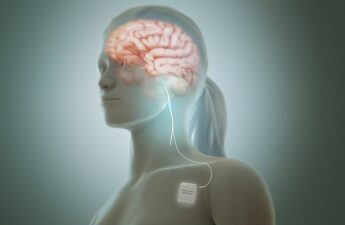Category: Wellness
Walking can prevent low back pain, a new study shows
Walking not only prevents recurrence of low back pain, it also delivers many other health benefits, including better heart health, improved mood and sleep quality, and reduced risk of several chronic diseases.
Navel gazing: checking your belly button can tell you a lot about your health
Navels, belly buttons, innies or outies … whatever term you use, your umbilicus may have plenty to tell you about the state of your health.
Hate salad or veggies? Just keep eating them.
Here’s how our tastebuds adapt to what we eat
What does weight-inclusive health care mean?
Weight-inclusive health care means a focus on better health with no weight loss required.
Meditation Is Big Business. The Science Isn’t So Clear.
For more than two decades, various studies have suggested that meditation and mindfulness — that is, being aware of the present moment — can help reduce and improve pain management, lending some credence to the notion that the brain can affect the body. Such results have helped the field grow into a multibillion-dollar industry, populated by meditation apps, guided workshops, and upscale retreats.
Yet the field has also faced sharp criticism from psychologists and researchers who say the health benefits are overstated and some of the research methodologically flawed.
Our vagus nerves help us rest, digest and restore. Can you really reset them to feel better?
On social media and in wellbeing circles, people have been talking about the vagus nerve a lot. In fact, we have two vagus nerves – a left and a right – and their optimal functioning is essential for good physical and mental health.
Many social media posts describe ways to reset the vagus nerves to reduce stress and increase calm. These mostly focus on yoga, meditation, deep breathing and cold plunges.
But the vagus nerves also play a part in why socialising, sex and sports are good for our health and wellbeing.
Does exercise help you lose weight?
Exercise will help you lose weight and prevent you putting on weight again – it’s just that it won’t help you achieve your weight loss goals in isolation.
Springing forward into daylight saving time is a step back for health – a neurologist explains the medical evidence, and why this shift is worse than the fall time change
Researchers are discovering that “springing ahead” each March is connected with serious negative health effects, including an uptick in heart attacks and teen sleep deprivation.
Exercise is even more effective than counselling or medication for depression. But how much do you need?
We found the higher the intensity of exercise, the more beneficial it is. For example, walking at a brisk pace, instead of walking at usual pace. And exercising for six to 12 weeks has the greatest benefits, rather than shorter periods. Longer-term exercise is important for maintaining mental health improvements. When comparing the size of the benefits of exercise to other common treatments for mental health conditions from previous systematic reviews, our findings suggest exercise is around 1.5 times more effective than either medication or cognitive behaviour therapy.
Kicking off the new year by cleansing your body with a detox diet? A dietitian unpacks the science behind these fads
Research shows that there is little evidence to support the use of detox diets and that they are not needed anyway. The body is well-equipped to eliminate unwanted substances on its own, without expensive and potentially harmful supplements sold by the nutrition and wellness industry.
Marriage provides health benefits – and here’s why
One theory that seeks to explain the link between marriage and health is the act of self-selection. Simply put, people who are wealthier and healthier than average are more likely not only to get married but also to find a partner who is wealthier and healthier than average. While this may be part of the story, marriage also provides partners with a sense of belonging, more opportunities for social engagement and reduced feelings of loneliness. This social integration, or the extent to which people participate in social relationships and activities, can greatly influence health – from reducing the risk of hypertension and heart disease to lowering one’s risk of death or suicide.









